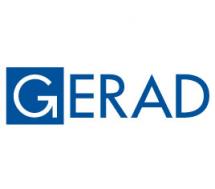
Title: Partially-ranked choice models for data-driven assortment optimization
Speaker: Andrea Lodi – Professeur titulaire, Département de mathématiques et de génie industriel, Polytechnique Montréal, Canada
The assortment of products carried by a store has a crucial impact on its success. However, finding the right mix of products to attract a large portion of the customers is a challenging task. Several mathematical models have been proposed to optimize assortments. In particular, rank-based choice models have been acknowledged for representing well high-dimensional product substitution effects, and therefore reflect customer preferences in a reasonably realistic manner.
In this work, we extend the concept of (strictly) fully-ranked choice models to models with partial ranking that additionally allow for indifference among subsets of products, i.e., on which the customer does not have a strict preference. We show that partially-ranked choice models are theoretically equivalent to fully-ranked choice models, but a partially-ranked preference sequence would require a factorial number of fully-ranked sequences to represent the same buying behavior.
We then show how partially-ranked choice models can be learned efficiently from historical transaction and assortment data. The embedded column generation procedure involves subproblems that can be efficiently solved by using a growing decision tree that represents partially-ranked preferences, enabling us to learn preferences and optimize assortments for thousands of products. Computational experiments on artificially generated data and case studies on real industrial retail data suggest a significant potential to increase profits when performing data-driven assortment optimization and provide useful insights on customer segmentations to the decision makers, in our real case, the store managers. When comparing to existing algorithms, our method increases by one order of magnitude the scale of problems that can be learned by non-parametric choice models. (joint work with Sanjay Jena and Hugo Palmer)
---
Free entrance.
Welcome to everyone!

